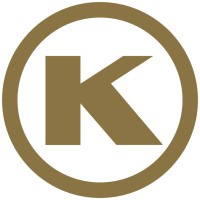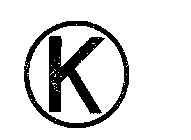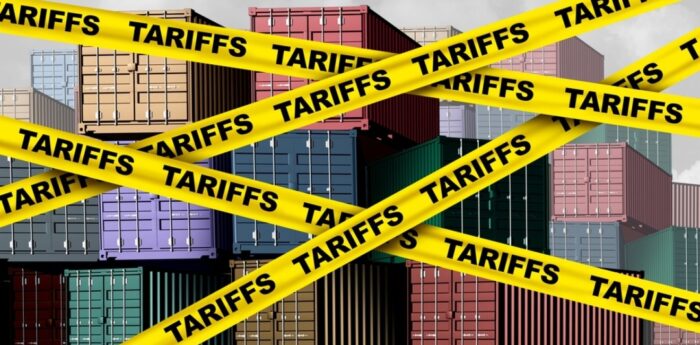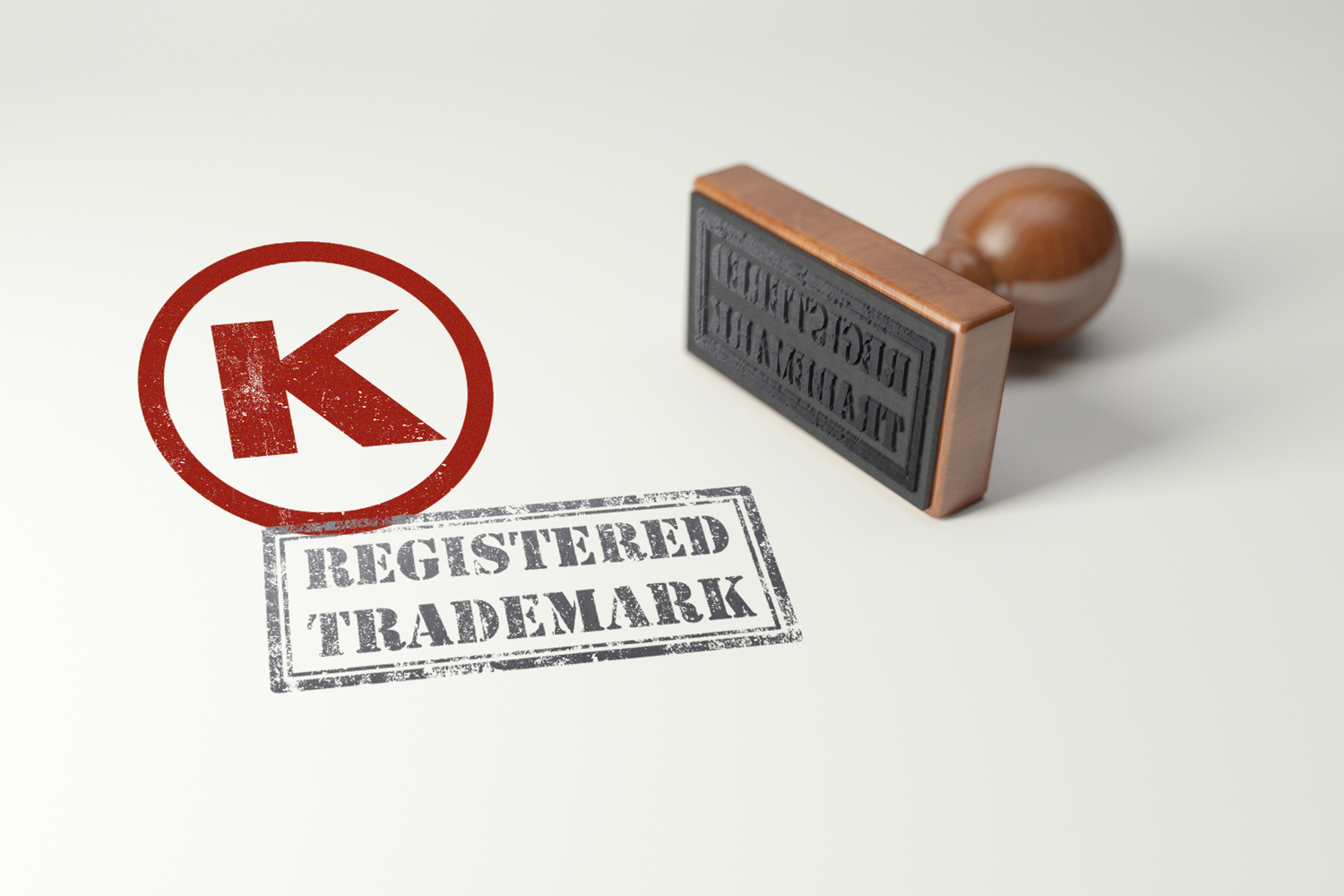
Part 1 of 2: Avoid These 9 Trademark Infringements with Kosher Certification
Kosher supervision and its associated kosher symbol, or certification mark are two distinct things. That’s right. Even the letter K itself becomes questionable when referring to a product’s kosher status.
In fact, there’s a lot of information (and misinformation) out there about what letters and symbols a company is allowed to print on their labels to signify kosher (or something else). And, yes, it’s legal information. That’s why we’ve created this article – so companies like manufacturers, restaurants, winemakers, caterers, transport companies and more can know the facts.
Start your company’s kosher certification off on the right foot, with no misuse, mistakes or missteps in using the OK Kosher symbol. And since that K in a circle is a registered Certification Mark licensed only by OK Kosher Certification, this is need-to-know information.
Below are the first six blunders in using the OK Kosher certification mark you should make sure not to do.
OK Kosher Symbol Misuse When Your Company Isn’t Kosher Certified
To some it may sound basic, but it’s news to others. The OK kosher symbol is a registered certification mark licensed exclusively (USPTO Registration Nos. 2,094,030 and 795,748) to – you guessed it – OK Kosher Certification. It’s safe to say most food and beverage companies know exactly who we are. Others, however, assume that the iconic letter K in a circle is just a generic sign for “kosher” status and that it’s okay to just put it on the label.
Unfortunately, that’s a fallacy and a legal liability. Sure, it may be legal – in some places – to print a plain or unbranded letter K on your label. That’s because plain letters of the alphabet isn’t trademarkable. However, the OK Kosher Certification Mark – a K in a circle – is a registered trademark in the United States and in many other countries:
So, while it is a globally recognized kosher symbol, the OK Mark is also a registered certification mark that not just any entity claiming to be kosher may use. Let’s look at some sample scenarios of trademark misuse of the OK Mark by companies when not certified by OK Kosher.
Unauthorized Use: Mistaken or Intentional Infringement of the OK Kosher Symbol
If you have a brand package, an Amazon listing, a website, online marketing or a retail display, keep in mind that slapping the OK Kosher Symbol – the letter K in a circle — on it is illegal if you’re not a registered, certified OK Kosher client. In fact, according to trademark law, our exclusive license to a K in a circle is enforceable even in a different font or different style. Further, any differences in font size, style, thickness of the circle, color, etc. are irrelevant as a matter of law, so long as the letter K in a circle likely would be confused by consumers as referring to the OK Kosher Registered Certification Mark. Our rights still stand firm.
Does this sound close-to-home? Don’t panic – there are specific steps you can take to rectify this issue. But there are some things we’ll need your cooperation on, and ASAP.
What to Do for Mistaken Unauthorized Misuse
If that kosher symbol is present on something we don’t certify, the first step is to make us aware so we can work together to correct that. Go ahead and fill out the form below to self-report mistaken use of the OK Kosher Symbol. You’re doing the right thing:
Now beyond mistaken unauthorized use, there are times when a company knows full well that they’re committing an intentional infringement. Our process for intentional unauthorized use will immediately involve addressing any product already on the market with our certification mark. Next, we’ll look into any other places (digital and/or physical) where the symbol is being used.
Next Steps for Any Unauthorized Misuse
This is where we need your cooperation. At our discretion, we may choose to notify the public and our extensive network of vendors and retailers of an unauthorized case. We do this because the people who rely on seeing the OK Kosher symbol on a product are taking it as assurance that the product they’re buying meets rigorous religious dietary standards. So it’s extremely important to them and to the people they’re serving food to. That’s whether it’s family, friends or customers.
Tip: Do answer our calls and emails, and be open and honest about the misuse of the OK trademark. Our goal is to protect the kosher consumer. To that end, we’ll find a way to work out the issue with minimal strain to your company’s operations.
Again, with your cooperation, we can right what went wrong. Now for some more mistaken use scenarios that cause some issues.
Misusing the OK Kosher Mark in Relation to the Ketogenic Diet (AKA Keto-Friendly)
We get it. All the certifications start to pile up and almost blur together in your mind. You may send all the label information to your graphic designer saying, “Here – make sure you get all this onto the label: Organic, Non-GMO, Gluten Free, Vegan and Keto.” And when you get the final design back, it has a bunch of neat circles lined up. Each one has a letter or two representing one of the various dietary claims.
Well, that K in the circle is our trademark, which signifies Kosher Certified by OK Kosher. Your first step here is to cease use of the symbol, i.e. remove it from the places where you’re using it to represent your brand. Then, you’ll want to replace that with a creative alternative to show your customers your products are Keto-friendly.
-
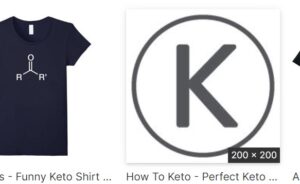
A creative alternative: a circle with the word Keto inside it. -
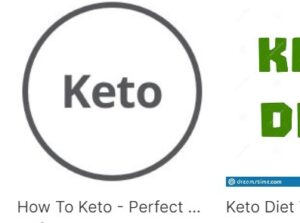
Example of unauthorized misuse of the OK Kosher Mark in relation to Keto.
In the above screenshots of a web search, the image on the left shows an unauthorized misuse* of the OK Kosher Mark in relation to Keto. The image on the right shows a creative alternative: a circle with the word Keto inside.
*The website in this example has since corrected the error.
Until the next great food trend starting with a K comes around, we’ll leave it at that for claims that look like (but aren’t) kosher. However, there are other times when use of the OK Mark is not allowed.
Using the OK Kosher Symbol as a Category Marker or Search Filter.
An increasingly common scenario is when web developer teams and UX/UI designers favor that sleek, handy K-in-a-circle when designing a category marker or search filter. Customers browsing your site can easily filter out their specifications, and Kosher is one that’s growing in popularity every year.
Yet, as you know by now, that’s also an unauthorized use. Have a look at one example below:

That’s a screen shot of an actual website that came to our Trademark and Licensing Department’s attention. Look at that icon four circles from the right. At the time, this snack subscription service was using our trademarked OK symbol to allow users to select “kosher” as a search filter. But the products in the kosher category were certified by an assortment of certifiers, not just ours.
They made a small tweak to the design to correct the problem. They decided to replace the OK Mark with an alternative icon, so as to no longer infringe on our trademark or signify certification of all items marked “kosher” on their site.
Contextualizing Kosher
We’re happy to see companies like this offering options for customers to find the products that meet their dietary needs – that’s right up our street! But there are many kosher certifiers out there. Each one employs a somewhat different process, slightly unique set of standards and, most relevant here, own their unique trademarked kosher symbol. The products any given online store will sell may be certified by any kosher certification, or may even claim to be kosher without a certification at all. We simply can’t vouch for anything but our own certification.
And it’s not just small companies like this one. Once upon a time, a mega-mammoth online retailer who shall remain nameless made the same misstep with our symbol. That situation was addressed and swiftly corrected internally. So you won’t find evidence of it on the Internet anymore. But one can imagine why we’d care so much.
Using the OK Kosher Symbol on a Private Label Without an Agreement in Place
Here’s another one. Let’s say your manufacturer is OK Kosher Certified. Your company has a private label agreement with them, and there you have it – your products are, by default, kosher certified too, right?
Not so fast. To use the OK Kosher Registered Certification Mark, you’ll need to secure a Private Label Agreement with OK Kosher. Why is that? In food manufacturing – you know – changes happen often and sometimes unexpectedly. So any time a product on the market is kosher under our certification we need proper record of it, to keep track of the formula and which company is using it.
Luckily, it’s just one application form, a short document and a nominal processing fee later, and you’ll be good to go.
Backpacking Off of Your Manufacturer’s Kosher Certification
This is the regulatory world. Remember, inspection and control systems are a foundation of kosher certification, like any other high-level certification standard. So it makes sense that every step of your processing and packaging needs accounting for.
You thought this through: you selected a manufacturer whose facility is under OK Kosher certification. You made arrangements to produce your formula there thinking you’ll end up with a kosher certified product to put to market. Then the product arrives in bulk at your packing facility. The bulk package gets opened-
STOP! As soon the seal gets broken on your bulk packaging, the kosher certification is null and void.
What can you do? This is where obtaining a kosher certification agreement comes into play. Even though your product manufacturer is kosher certified, you’ll need certification for your brand or packing facility.
Kosher Certification for your manufacturing? Learn how to get it here.
OK, That Wasn’t So Scary Was It?
We didn’t think so. Remember that the OK Kosher knowledge base is here to educate you in all the kosher information you may wish to explore on your own.
Wait, before you go – we’ll be back in a couple of weeks for part 2 of this discussion. It’s relevant to you companies out there who are already kosher certified. We’re here to keep your kosher pursuits well-informed and on the right track. Stay tuned, and sign up for email updates so you’ll get it first.
Want to find out if Kosher Certification is right for your company? Take the quiz.
The information presented in this blog post is based on research, general knowledge, and/or the author’s understanding of the subject matter. This blog is provided for informational purposes only and should not be relied upon by the reader or considered as professional advice. For specific guidance on any given topic, the reader should consult a qualified professional in the given field. OK KOSHER DISCLAIMS ANY LIABILITY FOR ANY LOSS OR DAMAGES RESULTING FROM RELIANCE ON THE INFORMATION PROVIDED IN THIS ARTICLE.


 EN
EN  ZH
ZH  KR
KR  BR
BR  ES
ES  IN
IN  IL
IL 
